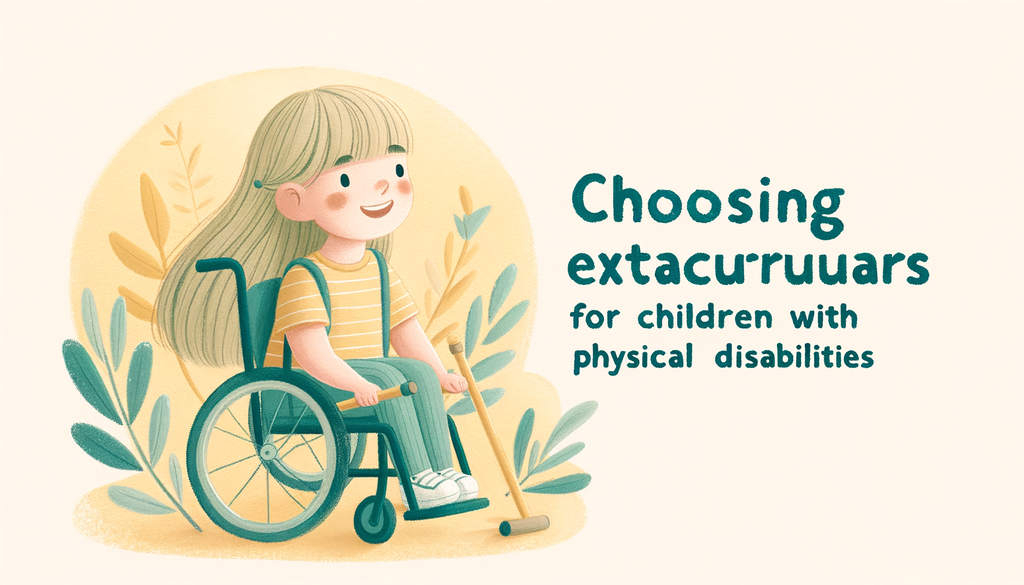Choosing Extracurriculars for Children with Physical Disabilities

Parents and caregivers of children with physical disabilities know that inclusion and participation in extracurricular activities are just as vital to their child’s development as academic success. These activities can cater to their specific needs while promoting their engagement with peers, boosting their self-esteem, and building a repertoire of skills. Yet, selecting the right activities and creating a supportive environment may pose a few challenges. Let’s discuss some actionable tips, solutions, and insights to make this task more manageable.
Understanding the Benefits
Choosing the appropriate extracurricular activities for a physically disabled child isn’t merely about passing time or keeping them entertained. Cricket, chess, dance, or gardening clubs provide ample opportunities for productive engagement. They offer the chance for children to explore their interests, discover new hobbies, or hone existing talents. Not only do these experiences contribute to their physical health, but they also foster social skills and emotional well-being.
Participation in extracurriculars can have numerous benefits, such as developing resilience, promoting teamwork, and enhancing communication skills. This growth ties in closely with the socio-emotional needs of twice-exceptional children, which we discussed in a separate post on strategies for success.
Selecting Suitable Activities
The selection of extracurricular activities should ideally take into account the child’s physical abilities, interests, and personality, as well as providing appropriate supports and accommodations. Look for activities that align with their strength areas and are adaptable to their physical capabilities. For instance, children with excellent hand-eye coordination might enjoy crafts or painting. In contrast, those with strong analytical abilities could find joy in chess or coding clubs.
Moreover, ensure that organizations, clubs, or venues are accessible, inclusive, and genuinely accommodating as discussed here. Furthermore, the use of assistive technology can help facilitate participation in many activities. You can get an idea of the range of applications available from our previous post on The Best Apps for Special Education.
Advocating for Adapted Programs
For children with physical disabilities, directly participating in conventional extracurricular activities might not always be practical. Thus, you should advocate for adjusted programs. Schools and organizations should empathetically adapt activities to ensure that every child can participate and benefit from them.
Remember, the goal of inclusivity in extracurricular activities is to promote genuine participation and interaction among all children, not to isolate or indirectly exclude certain children due to their disabilities. We delve deeper into advocating for genuinely inclusive educational practices in this informative post.
The Role of Assistive Technology
Using assistive technology can help create a more level playing field, enabling children with physical disabilities to participate more fully in various activities. When selected and utilized correctly, these tools can significantly enhance the children’s independence, self-confidence, and ability to perform tasks.
There are numerous innovative, assistive technologies available today, from accessible gaming controllers for children who love video games to adaptive musical instruments for musically inclined children. You can find our comprehensive review on applications designed to assist children with special needs right here.
Choosing extracurricular activities for children with physical disabilities requires careful consideration and often some creativity. But the benefits for children’s happiness, personal growth, and social development make it a worthwhile endeavor. Always remember to make sure your child’s voice is heard in this process because their interest and enjoyment are the key to a rewarding and fulfilling extracurricular experience.
Ananda Gupta, a renowned special education authority, once said, “Our ability to reach unity in diversity will be the beauty and the test of our civilization.” As with many things in life, with patience, understanding, and collaboration, we will build a more inclusive and joy-filled world for our children to grow and thrive.